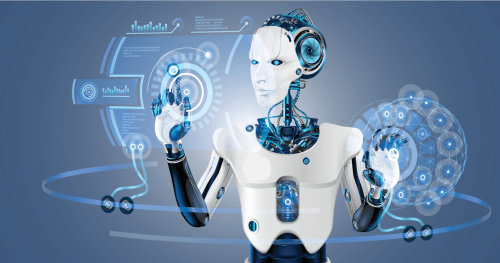Automation isn’t profitable for the companies building products and services on it. Uber claims it’ll be profitable by the end of 2020, but it’s not there yet. It lost $8.5 billion in 2019. Analysts remain skeptical. Lyft is wildly unprofitable, not even pretending it can make it by the end of this year. Grubhub and DoorDash lose money, especially on the food delivery component of their business. And investors and the tech press are putting the pressure on. WeWork – a coworking startup – might be one of the most unprofitable companies in the world.
Even the far less dicey social media world is less a goldmine than one might think. Twitter is profitable, but barely. It consistently misses its own profit forecasts. And Facebook – once wildly profitable – now suffers from narrowing profit margins.
These companies are household names, They’re darlings of the tech sector and widely emulated throughout the U.S. economy. How many executives say their businesses should be ‘more like Uber’ or ‘scrappy like WeWork or DoorDash’?
Why do CEOs model their businesses after losers?
Automation and Value
Executives love automation. They think it adds value to their businesses. Does it?
No. At least, it doesn’t if by ‘value’ one means a positive benefit – measured in cost – passed along in products and pocketed by the company in the form of profit. Using automation tools in its production process doesn’t raise the price and put more money in a company’s pocket.
But automation does increase profit by other means. It just doesn’t add value. In fact, it destroys value. And that’s the entire point. Automation tools destroy labor value by making work more productive. Companies get more work in the same time period or they fire some of their staff. In other cases, companies maintain staffing level but pay workers less money. How do they get away with it? More productive work requires less skill or expertise and thereby it holds less socially accepted value.
Those benefits flow to the companies using automation products, not to the ones making them. What kind of companies are those? For one, manufacturing companies automating production processes. Two, trucking companies incorporating automation into driving and delivery services. Three, universities and educational companies automating their content and delivery services. And so on.
The Ideology of Automation
Most people took Economics 101. Or they didn’t. Whichever. Either way, they know businesses like profit and value. So, if automation doesn’t deliver value – and the companies delivering automation don’t turn a profit – why are those companies still around? Why does Silicon Valley in particular – and American culture more broadly – love these companies?
They’re useful to the ideology and material interests of Silicon Valley and upper middle income people in the U.S. For one, companies like Uber, Lyft, et al. rake in tons of money from venture capitalists and other investors. Why? Their products and automation solutions destroy – or have the potential to destroy – hundreds of thousands of middle income jobs among taxi drivers, truck drives, et al. These are jobs Silicon Valley and the business press think are ‘low skill’ and therefore undeserving of good pay.
We’ll see continuing attempts at eroding jobs in other middle income industries via automation – industries like health care and teaching. Health care already makes heavy use of Lean production to eliminate jobs, but that route is nearing its limit. Agile does roughly the same thing, but that’ll also quickly reach its limits.
Second, their products and services are in high demand. Even when these companies don’t turn a profit, they earn a lot of revenue. Praise from business leaders and the business press recognizes the continuing usefulness of these services to capital.
It’s not that venture capitalists are altruists or mere servants of their own anti-worker ideology. They’re in the game to make money, and they’d love for every hokey tech startup to earn millions of dollars. But the game itself is built around anti-worker goals. And it’s against these goals people measure any tech or automation product.
All About Class War
Automation, then, is a tool of class war. And Silicon Valley is an innovation lab in the art of the class war. Which one? The one the bourgeoisie fights against the proletariat and various downtrodden groups.
And while individual actors might not fight the war intentionally, the social groups they comprise fight it at the social level. Like it or not, they’re pieces on the board. The base and superstructure thesis might not hold in its most rigid, teleological versions. But it holds at least this far.
